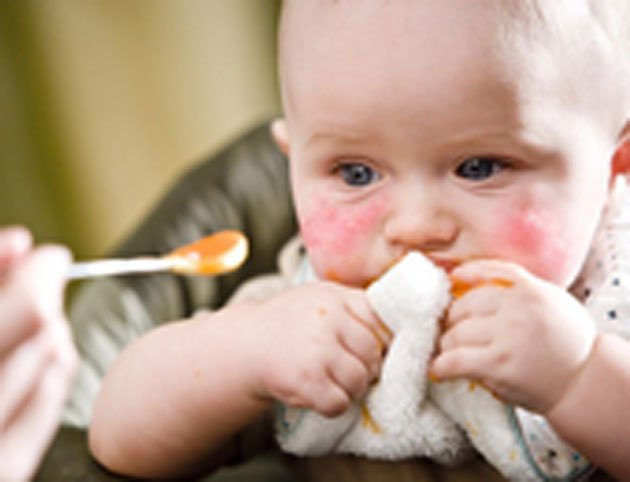Breast milk protects the child against food allergies

Breast milk is very important for the development of the baby, in addition to protecting us from food allergies and diseases.
In three decades, in our country, food allergies have doubled. Now, a new study, published in the Journal of Experimental Medicine, is the first controlled research that demonstrates protection against food allergy from breast milk, while pointing to a biological mechanism to induce tolerance to food . Basically, the results indicate that eating allergenic foods during pregnancy can protect your child from food allergies, especially if the mother breastfeeds the baby.
In the study, conducted by experts at the Children's Hospital of Boston and led by Michiko Oyoshi, a group of pregnant rats that consumed food that cause allergies, such as eggs and peanuts, transferred protective antibodies to their young through breast milk. . The antibodies caused the baby mice to produce allergen-specific regulatory T immune cells, which made them tolerate allergenic foods.
The findings support recent allergy prevention guidelines, which reject previous advice urging mothers to avoid highly allergenic foods during pregnancy or during breastfeeding.
"If mothers have to eat allergenic foods during pregnancy or avoid them has been somewhat controversial - Oyoshi explains in a statement -. Different studies point to different results, partly because it is difficult in human studies to know when mothers and babies consumed a specific food for the first time. In mouse models, however, we can control exposure to food. "
The study showed that breast milk from mothers who consumed allergenic foods, protected against food allergy, preventing anaphylaxis, as well as the production of immunoglobulin E and the expansion of mast cells, both characteristics of an allergic response. Breast milk protected even when feeding unrelated pups that were not exposed to food allergens in the womb.
A test was also performed in which mice with humanized immune systems (adapted to respond to human antibodies) were fed human breast milk. The results showed that protective effects were also seen, suggesting that these effects can be translated into human babies.
Finally, Oyoshi's team made mice born to mothers exposed to allergens, consume milk from mothers who had never consumed allergenic foods. "Here we also observe protective effects - adds Oyoshi -. But the protection was better when the mice were also exposed during. If we combine exposure in the womb and lactation, there is an optimal induction of tolerance to food. "
The next step is to discover if these protection mechanisms are applied in humans. To find out, Oyoshi has convened mothers who are currently breastfeeding to compare milk and see what effects it produces in children with a family history of allergy.
Thanks for sharing, enjoy the vote!
Great post, upvoted!